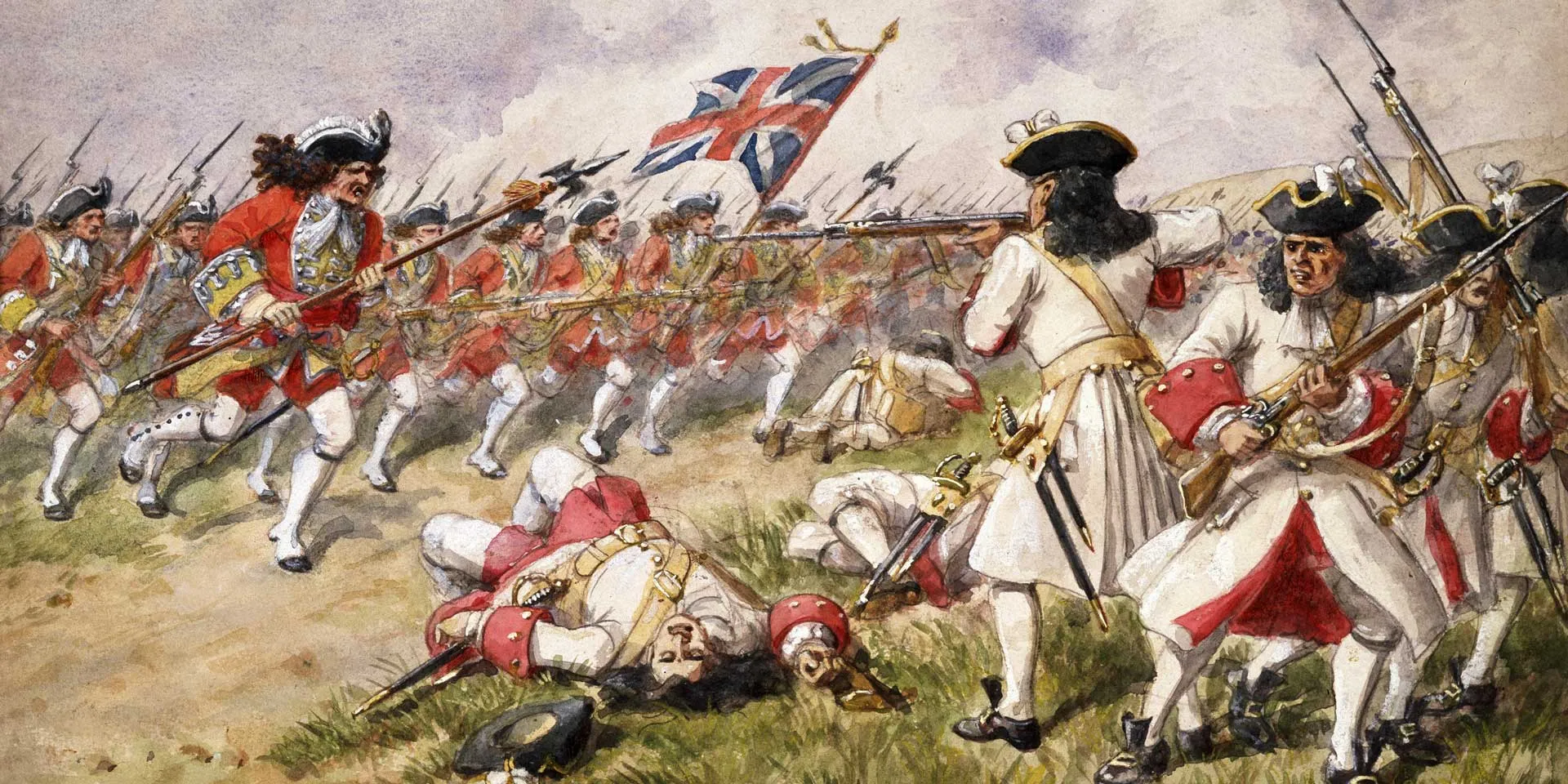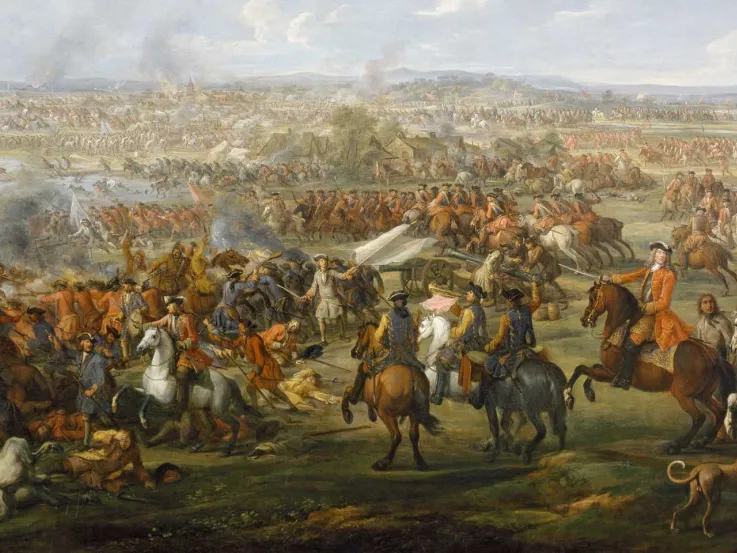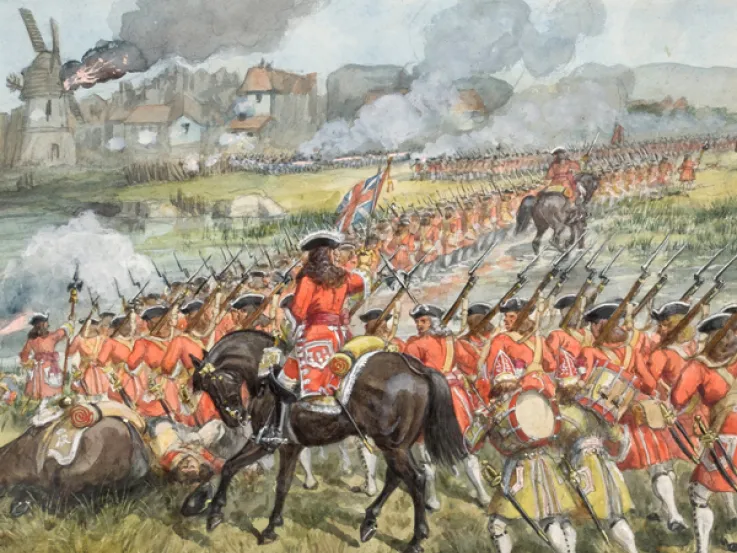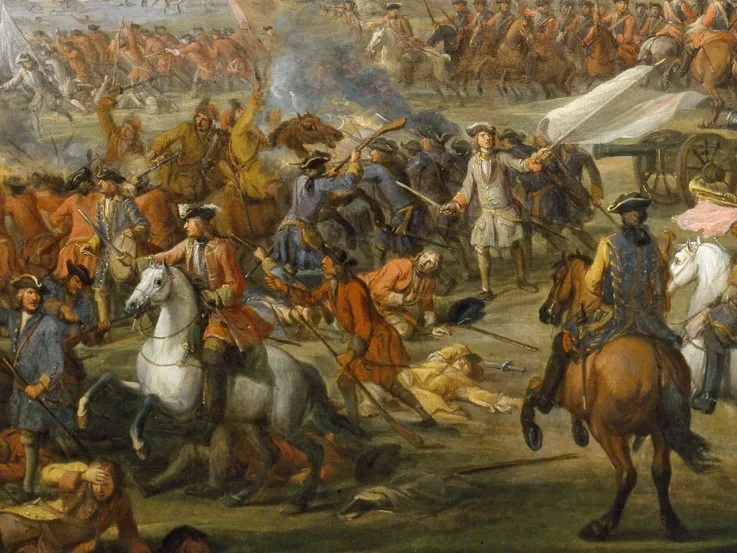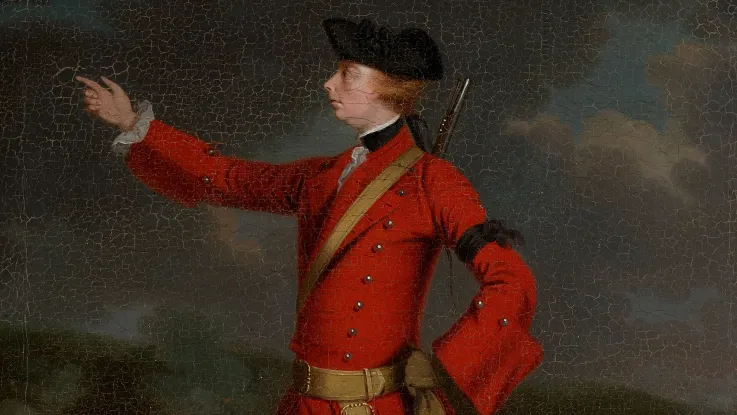Early service
John Churchill (1650-1722) was born into a gentry family that had been impoverished during the Civil War. He joined the Army in 1667 and rose steadily through the ranks, acting as second-in-command at the Battle of Sedgemoor (1685), and later commanding English troops in Flanders and Ireland during the Nine Years War (1689-97).
His greatest success came in the War of the Spanish Succession (1702-13), in which Britain fought as part of a coalition of European powers to contain French expansion.
Captain-General
In 1702, Marlborough was appointed Captain-General of the allied forces. Although one of England’s senior commanders, he was not a natural choice, and was even regarded as reckless by some of his contemporaries.
He was soon to prove that - unusually for a general of his era - he was prepared to manoeuvre to bring about a decisive battle, and was then able to react quickly and resolutely as the tactical situation developed.
Blenheim
In 1704, Marlborough marched his army some 400km (250 miles) from Flanders to Bavaria to relieve French pressure on his Austrian allies. There, he joined forces with the Imperial general Prince Eugene of Savoy. Their combined armies faced the French near the village of Blenheim.
Although outnumbered and facing an enemy in a strong natural position, Marlborough nevertheless attacked. Realising that the French position did not allow troops to be moved easily around the battlefield, he pinned down their flanks and then delivered a crushing blow against his enemy’s weakly defended centre.
The French army suffered its first major defeat in 40 years, sustaining over 30,000 casualties and having its commander-in-chief captured.
‘The Duke of Marlborough’s attention and care was over all of us.’Corporal Matthew Bishop — 1708
Ramillies
In 1706, Marlborough repeated this feat at the Battle of Ramillies. After launching an attack on the French left flank, he skilfully transferred troops, out of sight of the French, to reinforce his centre, where he then attacked and broke the enemy line.
Oudenarde and Malplaquet
He followed up this victory with four successful sieges, which allowed the allies to control the entire Southern Netherlands. It was the most successful campaign of Marlborough's career.
By skilful battlefield manoeuvres, Marlborough achieved another crushing victory at Oudenarde in 1708. Although the allies suffered massive casualties in the drawn Battle of Malplaquet in 1709, French expansion had been finally halted.
Dismissal
At home, however, support for the war had started to wane. A new government had entered office and was anxious for peace. Queen Anne had also banished the Duchess of Marlborough from court. Without influence, her husband was dismissed at the end of 1711.
Although restored to favour under King George I, Marlborough was already a sick man. He lived mainly in retirement until his death in 1722.
A great commander
Marlborough’s battlefield successes were combined with personal courage, wider organisational and political skills, a gift for logistical planning, and the ability to co-operate effectively with his allies.
This was especially true with the Dutch. They contributed the largest number of troops to Marlborough’s army, and were largely responsible for keeping it supplied.
Marlborough was always concerned about the welfare of his soldiers and was thus able to gain their trust and confidence. These many qualities ensure his reputation as one of Britain’s greatest generals.





